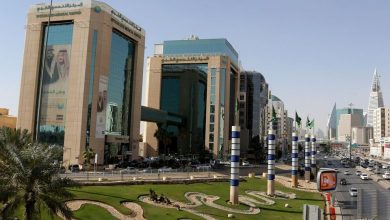Food security in Saudi Arabia, a chronic government failure in the face of growing challenges

The Saudi government continues to succumb to the growing challenges in dealing with food security in the Kingdom.
With the continuing pace of the Ukrainian-Russian war, which seems not to end soon, its effects on several sectors have increased, the most important of which are energy and food, as the two countries produce about a third of the world’s wheat.
The decision to ban India from exporting rice (except for poor and developing countries) increased global concerns. At the same time, climate change slowed the growth of global food production by about 21% over 6 decades.
The US Department of Agriculture expected wheat production to decline to its lowest level in 4 years due to several factors, including the Ukraine war.
The World Bank warned of the most significant sudden rise in commodity prices in half a century.
The concept of food security is related to the citizen’s ability to obtain their basic food needs at a reasonable price away from price fluctuations and their effects.
While the Kingdom has achieved its food security in some commodities such as potatoes, dates, eggs and milk, the biggest challenge is represented in the two most important products: wheat and rice, which depend on imports to secure them.
The Kingdom is the second-largest spender on rice imports, with $1.45 billion, according to ITC statistics for 2020.
Despite official statements that the Kingdom’s food security is out of danger, these statements are not entirely accurate.
According to Alia Al-Hussaini, GCC countries, including Saudi Arabia, import about 85 per cent of their food, senior fellow at equity research at Arkham.
Although the Kingdom’s economy topped the Arab world, it occupied the last place in the Gulf in the food security index according to the World Food Security Index data for the year 2021. Qatar, Kuwait, the UAE, Oman and Bahrain topped the index scores, while the Kingdom bottomed in the Gulf ranking.
Sasha Marachlian, General Manager of Image FMCG, the international distributor for the Gulf markets, warned of the growing challenges, predicting that food prices in the GCC will rise by 17-20% in the next 18 months.
This confirms the continuation of inflation in the Kingdom for the 28th consecutive month.
Concerning wheat, the Kingdom has, over decades, relied on several strategies to secure it.
In the eighties of the last century, the Kingdom, only 3 years after the beginning of King Fahd’s rule, achieved self-sufficiency in wheat production and began exporting after 4 years, becoming the second-largest producer of Arab wheat after Egypt with four million tons.
Growing food insecurity in the Kingdom has led to the purchase or lease of land in developing countries like Ethiopia and Sudan.
According to the Ministry of Environment, Water and Agriculture report, the Kingdom rank first in the world in food waste, with about 49 billion riyals annually and up to 250 kg of food wasted annually per person. At the same time, the global average is only 115 kg.
Food security is a top priority for any country. Although the Kingdom relies on its strong economy to secure its needs, it is affected by oil prices, general crops, crises and wars. Therefore, reliance on imports to secure food and not seeking to solve the problem will keep it at the mercy of the global market and political fluctuations.




